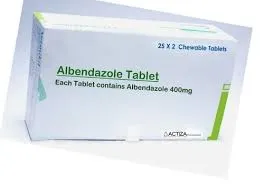- Afrikaans
- Albanian
- Amharic
- Arabic
- Armenian
- Azerbaijani
- Basque
- Belarusian
- Bengali
- Bosnian
- Bulgarian
- Catalan
- Cebuano
- Corsican
- Croatian
- Czech
- Danish
- Dutch
- English
- Esperanto
- Estonian
- Finnish
- French
- Frisian
- Galician
- Georgian
- German
- Greek
- Gujarati
- Haitian Creole
- hausa
- hawaiian
- Hebrew
- Hindi
- Miao
- Hungarian
- Icelandic
- igbo
- Indonesian
- irish
- Italian
- Japanese
- Javanese
- Kannada
- kazakh
- Khmer
- Rwandese
- Korean
- Kurdish
- Kyrgyz
- Lao
- Latin
- Latvian
- Lithuanian
- Luxembourgish
- Macedonian
- Malgashi
- Malay
- Malayalam
- Maltese
- Maori
- Marathi
- Mongolian
- Myanmar
- Nepali
- Norwegian
- Norwegian
- Occitan
- Pashto
- Persian
- Polish
- Portuguese
- Punjabi
- Romanian
- Russian
- Samoan
- Scottish Gaelic
- Serbian
- Sesotho
- Shona
- Sindhi
- Sinhala
- Slovak
- Slovenian
- Somali
- Spanish
- Sundanese
- Swahili
- Swedish
- Tagalog
- Tajik
- Tamil
- Tatar
- Telugu
- Thai
- Turkish
- Turkmen
- Ukrainian
- Urdu
- Uighur
- Uzbek
- Vietnamese
- Welsh
- Bantu
- Yiddish
- Yoruba
- Zulu
Dec . 16, 2024 05:50 Back to list
Ivermectin Injection Use in Alpacas for Effective Parasite Control and Health Management
Ivermectin Injectable for Alpacas A Comprehensive Overview
Ivermectin is a broad-spectrum antiparasitic agent widely used in veterinary medicine and has become a critical medication in the management of various parasites in alpacas. As a member of the macrocyclic lactones class of drugs, Ivermectin is effective against a range of parasites, including gastrointestinal nematodes, ectoparasites, and certain tick species. Given the unique needs of alpacas, it is essential for farmers and caretakers to understand the appropriate use of Ivermectin injectable formulations and the benefits they provide.
Understanding Ivermectin and Its Mechanism of Action
Ivermectin acts by binding to specific and high-affinity sites on invertebrate glutamate-gated chloride channels, leading to paralysis and death of the parasites. Additionally, it enhances the permeability of the cell membrane to chloride ions, which disrupts the neurotransmission process in these organisms. This mode of action makes Ivermectin highly effective against both adult parasites and larvae, thereby ensuring a comprehensive treatment strategy.
Indications for Use in Alpacas
Ivermectin injectable formulations are indicated for the treatment of a wide range of parasitic infections in alpacas. These include
1. Gastrointestinal Parasites A common concern among alpacas, parasites such as Ostertagia, Haemonchus, and Trichostrongylus can lead to severe health issues, including weight loss and anemia. Regular deworming with Ivermectin aids in maintaining the overall health and productivity of alpacas.
2. Ectoparasites External parasites, such as mites and lice, can cause significant discomfort and skin issues. Ivermectin injectable treatment provides effective relief, ensuring the well-being of the animal.
3. Meningeal Worms The presence of Parelaphostrongylus tenuis, a parasite that can cause neurological disorders, poses a significant risk to alpacas. Timely administration of Ivermectin can help manage this threat and protect the animals from severe neurological damage.
ivermectin injectable for alpacas

4. Ticks Ivermectin also demonstrates efficacy against certain tick species, helping to reduce the prevalence of tick-borne diseases in alpacas.
Administration and Dosage
The injectable form of Ivermectin offers several advantages over oral formulations. The injectable route ensures quick absorption and a more consistent therapeutic effect, particularly beneficial for animals that may be difficult to medicate orally. The standard dosage for alpacas is generally 0.2 mg/kg of body weight. However, it is crucial to consult a veterinarian for specific dosage recommendations based on individual health status and the severity of the parasitic infection.
Safety and Side Effects
Ivermectin is generally considered safe for use in alpacas when adhering to the recommended dosages. However, like any medication, it may have side effects, which can include mild lethargy or transient ataxia in some cases. Caretakers should observe treated animals closely for any adverse reactions and consult a veterinarian if any concerning symptoms arise.
Rotation and Resistance Management
One significant challenge faced in parasitic treatment is the potential development of resistance. To mitigate this risk, it is advisable to rotate different classes of antiparasitic medications and implement effective herd management practices. This approach not only helps in controlling parasite populations but also ensures that Ivermectin remains an effective tool in the treatment regimen for alpacas.
Conclusion
Ivermectin injectable formulations represent a vital component of parasite management in alpacas. With their broad-spectrum efficacy, rapid action, and ease of administration, these medications can significantly enhance the health and productivity of these animals. It is essential for alpaca owners to work closely with a veterinarian to develop an effective parasitic control program that emphasizes proper use, timing, and dosage of Ivermectin, ensuring a healthier future for their herd. Through responsible management practices, the benefits of Ivermectin can be maximized, making it an indispensable asset in veterinary medicine for alpacas.
-
Guide to Oxytetracycline Injection
NewsMar.27,2025
-
Guide to Colistin Sulphate
NewsMar.27,2025
-
Gentamicin Sulfate: Uses, Price, And Key Information
NewsMar.27,2025
-
Enrofloxacin Injection: Uses, Price, And Supplier Information
NewsMar.27,2025
-
Dexamethasone Sodium Phosphate Injection: Uses, Price, And Key Information
NewsMar.27,2025
-
Albendazole Tablet: Uses, Dosage, Cost, And Key Information
NewsMar.27,2025













